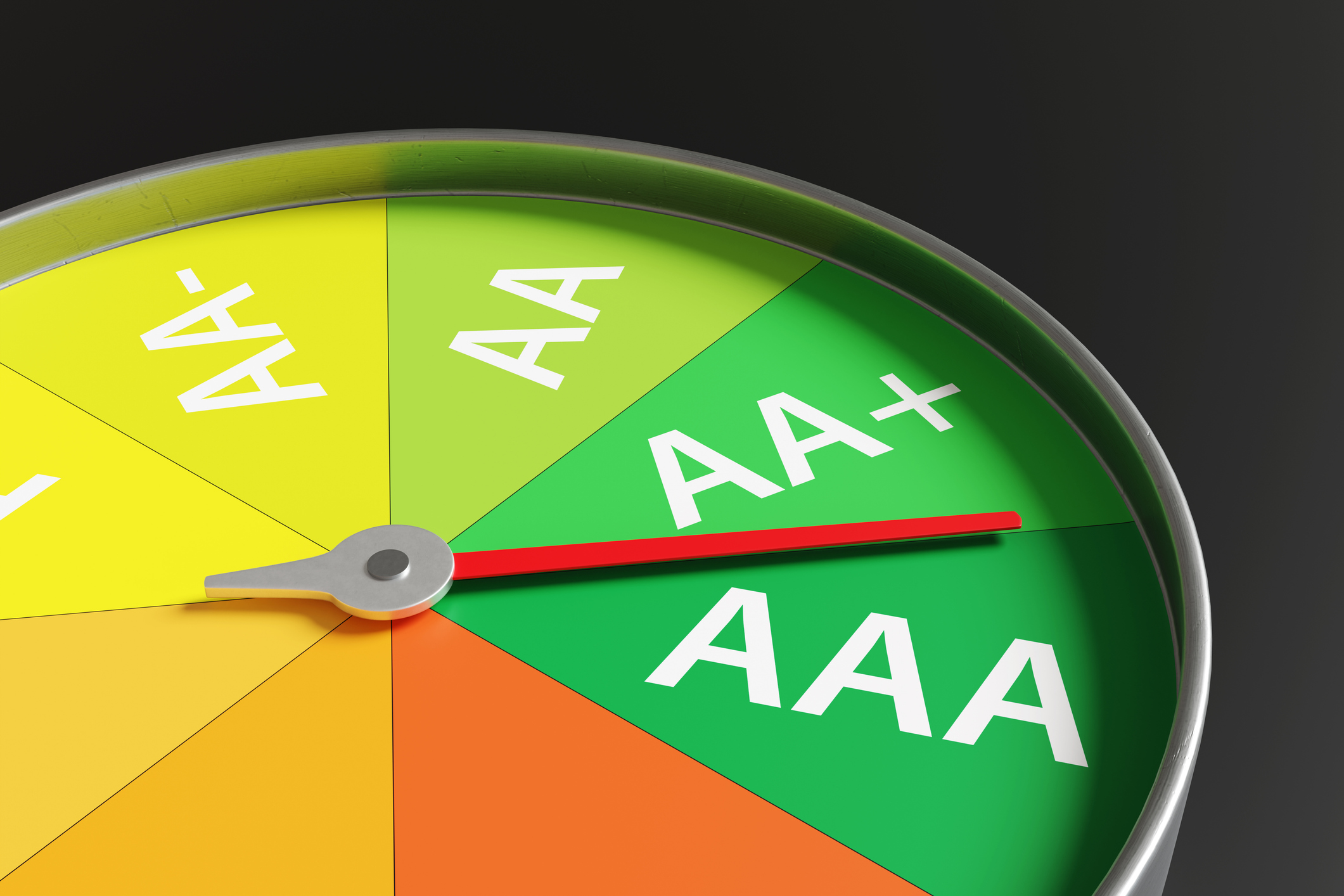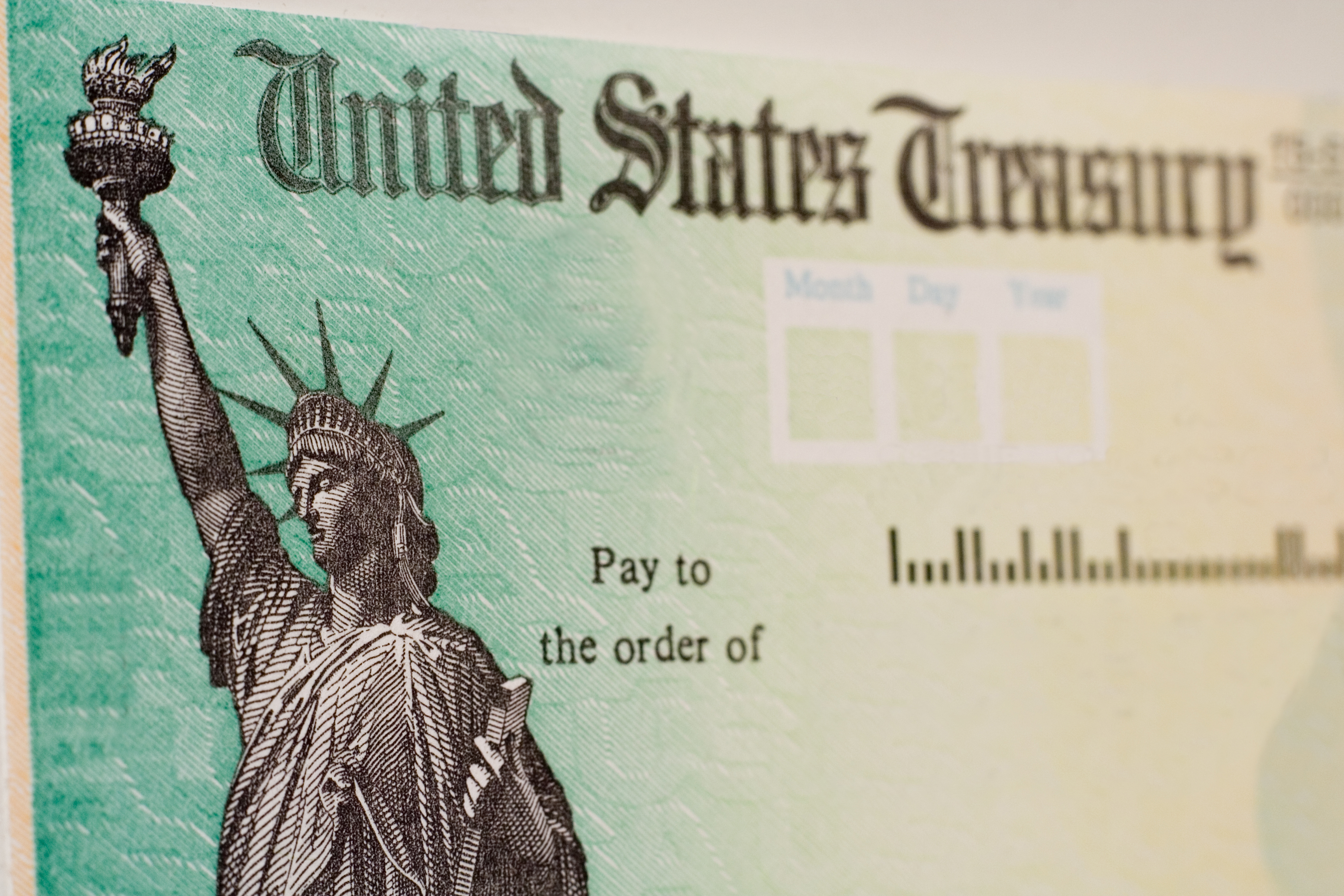Where to Invest Right Now
Kiplinger's executive editor Anne Smith joins the show to chat about her mid-year outlook for the economy and the stock market. Also, our hosts Ryan Ermey and Sandy Block break down what marks a recession and answer listeners' questions.

Profit and prosper with the best of Kiplinger's advice on investing, taxes, retirement, personal finance and much more. Delivered daily. Enter your email in the box and click Sign Me Up.
You are now subscribed
Your newsletter sign-up was successful
Want to add more newsletters?

Delivered daily
Kiplinger Today
Profit and prosper with the best of Kiplinger's advice on investing, taxes, retirement, personal finance and much more delivered daily. Smart money moves start here.

Sent five days a week
Kiplinger A Step Ahead
Get practical help to make better financial decisions in your everyday life, from spending to savings on top deals.

Delivered daily
Kiplinger Closing Bell
Get today's biggest financial and investing headlines delivered to your inbox every day the U.S. stock market is open.

Sent twice a week
Kiplinger Adviser Intel
Financial pros across the country share best practices and fresh tactics to preserve and grow your wealth.

Delivered weekly
Kiplinger Tax Tips
Trim your federal and state tax bills with practical tax-planning and tax-cutting strategies.

Sent twice a week
Kiplinger Retirement Tips
Your twice-a-week guide to planning and enjoying a financially secure and richly rewarding retirement

Sent bimonthly.
Kiplinger Adviser Angle
Insights for advisers, wealth managers and other financial professionals.

Sent twice a week
Kiplinger Investing Weekly
Your twice-a-week roundup of promising stocks, funds, companies and industries you should consider, ones you should avoid, and why.

Sent weekly for six weeks
Kiplinger Invest for Retirement
Your step-by-step six-part series on how to invest for retirement, from devising a successful strategy to exactly which investments to choose.
Ryan Ermey: This year has shepherded in unprecedented times in so many ways, including in the economy and stock market. Here to make sense of it all is Kiplinger executive editor Anne Smith who previews her midyear stock market and economic outlook in our main segment. On today's show Sandy and I give a refresher on what defines a recession and delve into the listener mailbag for a question on mortgages. That's all ahead on this episode of Your Money's Worth, stick around.
- Episode Length: 00:26:24
- SUBSCRIBE: Apple Google Play Spotify Overcast RSS
Ryan Ermey: Welcome to Your Money's Worth. I'm Kiplinger's associate editor Ryan Ermey, joined as always by Sandy Block. Sandy, how are you?
Sandy Block: I'm good. We're working up a little bit of a sweat, but probably not as much as you, Ryan.
From just $107.88 $24.99 for Kiplinger Personal Finance
Become a smarter, better informed investor. Subscribe from just $107.88 $24.99, plus get up to 4 Special Issues

Sign up for Kiplinger’s Free Newsletters
Profit and prosper with the best of expert advice on investing, taxes, retirement, personal finance and more - straight to your e-mail.
Profit and prosper with the best of expert advice - straight to your e-mail.
Ryan Ermey: Yeah. I've been working up a serious sweat, because we've been conquering some audio issues.
Sandy Block: Technical issues.
Ryan Ermey: I mean, unbelievable. I don't know why it stresses me out as bad as it does. I think I just hate the idea of wasting other people's time, specifically yours in this case, Sandy. So thank you for bearing with me. What are we talking about in our opening segment today? The very, very fun and exciting topic of recession.
Sandy Block: That's right. The National Bureau of Economic Research (NBER) came out this week and said that the economy went into recession in February, which comes as a surprise to absolutely no one. That's like saying that the NBER said that the sun has been setting in the West for most people. But with this is actually somewhat unusual, because usually they don't make this announcement until we're well into a recession, and oftentimes by the time we're told that we're in a recession is over. And in this case, this recession has been so broad and severe that the National Bureau of Economic Research came out early. And one of the things I think some people are sort of hanging on is that because it was so severe that maybe it will end more quickly, but there are a lot of questions about whether that will happen, but maybe Ryan, you want to tell us what a recession is?
Ryan Ermey: Yeah, it's a very good question. And one that will be useful in our next segment with Anne Smith about what this recovery might look like, both in terms of the economy and in terms of the stock market. The National Bureau of Economic Research are really the honchos who decide what is a recession -- and what is it? They define it as a significant decline in economic activity spread across the economy, lasting more than a few months. Which sounds pretty nebulous if you ask me.
Sandy Block: Gives it a lot of wiggle room.
Ryan Ermey: It's just when the economy is bad. So, there's some more precise textbook definitions. The one that was at first suggested by Julia Shishkin, the then commissioner of the Bureau of Labor Statistics in 1974, said a decline in real gross national product for two consecutive quarters. That really seems to be the big one that most people go off of. Also a 1.5% decline in real gross national product, a decline in manufacturing over a six month period, a 1.5% decline in non-farm payroll employment. A reduction in jobs in more than 75% of industries for six months or more, and a two point rise in unemployment to a level of at least 6%. Now we're obviously seeing things hit a lot of those levels here.
Sandy Block: But except that as you pointed out, they tend to measure them over six months and we're not there yet. But I think what I'm guessing is that the economists are saying, it's unlikely that this will be over in less than that period of time. This recession is going to last six months, because it's going to take us awhile to get out of it. And, this obviously for a lot of people is how a recession affects you, it's destructive.
Sandy Block: It creates widespread unemployment, which is exactly what we're seeing now and that's how it affects most people. And as even as the unemployment rate rises, consumer purchases fall off and oftentimes people will stop spending and that will even continue into the recovery. So, recessions can really have a deep affect and enough times, they really have . . . young people who are starting out the hardest because they're just getting started. And one of the things that often happens that we expect to see is that wages are depressed. And if you start out with depressed wages that kind of stays with you for a long time. So, recessions are tough. They can be mild, they can be severe, but they obviously are something that stick in your memory for a long time.
Ryan Ermey: So it's worth noting where we are now. The folks at The Kiplinger Letter stay on top of this. So recovery has started in the labor market, employment rose by 2.5 million or 11% of the jobs lost earlier this spring with the biggest gains in construction, retail, healthcare and food service, as a lot of those businesses come back online. Worker hours rose by 4.3%. And the unemployment rate declined to 13.3% from 14.7% in April. However, the Letter notes that the aggregate numbers don't tell the whole story. While more jobs are added than were lost, 4.9 million workers still lost their jobs in May. Layoffs continued at airlines, hotels, state and local governments, and some retail stores, for example. The Bureau of Labor Statistics has admitted to having a problem correctly counting the unemployed. And if this correction were made, and if the labor force participation had stayed the same as it was in February, the current employment rate would be 19.2% down from 23.9% in April.
Ryan Ermey: So there's still pretty substantial unemployment. And even after more workers have returned, wage growth will likely be subdued. And this is something that ties back to what you were talking about, Sandy. Hourly earnings rates are elevated right now, because so many low paid workers were laid off that it caused the average wage rate to jump. But as workers come back, the still high unemployment rate is likely to depress wage growth below 3%, below the trend that we were seeing before the crisis broke out.
Ryan Ermey: So we're not exactly sure what shape this economic recovery will take. The recession that began in February ended the longest economic recovery in history. And we don't know if this is going to be a V-shape, if a vaccine, then whoop right back up. Or, if it's going to be a "W" with a dip in it or a Nike swoosh. Anne Smith will talk about that a little bit in the next segment, but it's worth noting that we're in for a pretty deep nasty recession, which could have economic repercussions that last for a long time. So worth keeping a mind to color the conversation that's coming up right after the break, stay tuned for more economy and market talk with Anne Smith.
Ryan Ermey: We are back and we're here with Anne Smith. She is the executive editor of Kiplinger's Personal Finance. She is the investing editor and she is my boss. She's also the author of our midyear market outlook. So Anne, thank you so much for coming on.
Anne Smith: Oh, it's my pleasure, Ryan.
Ryan Ermey: So 2020 has been an unprecedented year in so many regards, not least of which in terms of the economy and the stock market. So what has gone on and where do we stand now?
Anne Smith: Yeah, you're not kidding. There's been some pretty bold moves played out in record time. It was the fastest, the S&P 500 fell into bear market territory, for example. And then coming out the first 50 trading days were the biggest gain in modern market history. So super fast. It seems silly to ask if we're in a bull market now, but it actually remains to be seen. Most of the experts I talked to think that we are, and I also think we are, but I would definitely not be surprised to see a 10 or 15% correction in the market from here. I think it's gotten a little bit ahead of itself. As for the economy we found out just this week from the official arbiter, which is the National Bureau of Economic Research that we went into a recession in February. Of course, we all knew right away that we were in a big fat recession. And indeed it's worse than the financial crisis and the worst ones since the great depression.
Sandy Block: And it seems in some ways, when you look at how the market has been performing and the most recent unemployment numbers that we're on a very fast road to recovery, but there might be some major economic hurdles ahead of us. What shape is this recovery likely to take?
Anne Smith: Well, you can take your pick. There's a robust debate and no real consensus. Is it a V-shaped, U-shaped, W-shaped, maybe it's a Nike swoosh. I interviewed Nariman Behravesh, the chief economist for IHS Market, for this outlook story. He makes a very good case for a square root shaped economic recovery. That means a relatively sharp bounce back, which we're seeing, but then a growth rate that flattens out. And he doesn't see economic growth getting back to pre-pandemic levels until 2022. And we did get a good unemployment number, although we need to see more than one, because these things can be wonky month to month. But high unemployment rates are slower to resolve than just GDP growth. We can see double digit unemployment into 2021.
Ryan Ermey: So with market's up substantially from the bottom, investors seem to be willing to . . . I've heard a couple of investing. People say, "Look across valley." So to speak when it comes to the lingering challenges from the COVID-19 pandemic. What is propelling share prices right now, given the nebulous outlook for corporate earnings?
Anne Smith: Well, you said it, Ryan, the market looks ahead. It leads the economy and not the other way around. So people are definitely optimistic about the recovery. And you have to remember that this recession is unique in another way. It started overnight with the COVID-19 shut down, and it's likely to be bookended on the other side with a vaccine. But the other thing is that investors are definitely betting that the Federal Reserve has their backs. The monetary and the fiscal stimulus that have been injected into the market and into the economy, by the Fed and also by Congress is massive and massive isn't even a big enough word, it's unprecedented. Could that come back to bite us in the form of inflation? That's something else that remains to be seen.
Sandy Block: So, Anne, given what do we think the market will do for the rest of the year? How should people be positioning their portfolios with all this uncertainty and all this unprecedence?
Anne Smith: Well, I'll be honest, the market has already eclipsed my forecast for the year. And as Ryan and I discussed, I'm not sure what to root for -- my portfolio or my forecast. But like I said, I'm expecting a breather and some more volatility this year. You have competing market aphorisms that you don't fight the Fed the Wall Street saying goes, but also trees don't grow to the sky, so I definitely expect a breather. That said, we definitely lean towards stocks and not hide out in bonds and cash. We like U.S. stocks better than international shares, but it would definitely be a mistake to count foreign markets out. Some of those markets are rallying and you need exposure there. Like a lot of Wall Street strategists, we like tech and healthcare. Tech stocks led the bull market, they outperformed in the bear market.
Anne Smith: They still have a lot going for them, longterm secular trends, but also a lot of the fangy tech stocks are at record highs now and I wouldn't be surprised to see some of them pause for a bit. Healthcare is very dynamic, especially now. And I encourage everybody to look for our take on the best health care stocks in the August issue of Kiplinger's Personal Finance. And I'll just add one other thing. One thing that we're starting to see, and this happens in markets cycle transitions is that the sectors in industries that were bull market laggards are starting to outperform. And that includes some of the international markets as we said, including emerging markets. The smaller and mid-cap company stocks, value price stocks, as opposed to fast growing companies, they were big laggards and have started to move here. And also stocks that are sensitive to swings in the economy, which obviously do well when the economy does well. They're also called cyclical stocks. If you've been underweight in those areas, as most people have, it's time to nibble.
Ryan Ermey: Well, when it comes to picking stocks, you mentioned in the July outlook story, that you're recommending investing in some defensive stocks, but not too defensive. And some stocks, as you mentioned, that are sensitive to economic swings, but not too sensitive. So what is the kind of sweet spot that we're looking for here? And what are a couple of stocks that you mentioned in your story?
Anne Smith: Yeah, the rationale for that strategy is because defensive stocks got so incredibly expensive that the risk reward payoff just wasn't there. And also the ones that get the biggest pop when the economy shows signs of recovering are also the riskiest. To see examples of that, you only have to look at what cruise lines have done recently. They have the incredible gains. They have the most to gain from a recovery, but you can't say that they are not risky. We don't know what the longterm outlook for that industry and so many others are. So in between, you have some solid pics that still have some room to move up from here. And I spoke with David Giroux, I hope I'm pronouncing his name correctly. He's the head of investment strategy for T. Rowe Price. He recommended a bunch of stocks that fit this middle of the road strategy.
Anne Smith: One is an industrial machinery maker called Fortive (FTV). Semiconductors are a good fit for this strategy, including Maxim Integrated Products (MXIM) and NXP Semiconductors (NXPI). Utilities, surprisingly, a straight up defensive play, did not get as overpriced as some of the other defensive sectors like consumer staples for instance.
Anne Smith: One utility is American Electric Power (AEP). And Ryan you're going to tell us more about utilities in the upcoming issue, I think. General Electric, travel company Hilton Worldwide, global payments giant Visa, these are all stocks that Giroux likes and that fit this room to run a sort of defensive sort of cyclical play. And then some other stocks that we recommended, one that was definitely a contrarian pick that we recommended it, but not so much now is Southwest Air (LUV). Airlines have been rocketing higher, pardon the pun. But Southwest Air is very well positioned, it's a low cost carrier with the financial resources to survive until people are really comfortable getting on airplanes again. We also like Peloton (PTON) and Costco Wholesale (COST), they both got a COVID bump, but they should continue to do well in the post-pandemic environment too. And then finally we liked Becton Dickinson (BDX), which is a healthcare equipment maker. They've got a basket of COVID-related products, but they're a very solid healthcare pick for us.
Ryan Ermey: Well, all excellent advice and be sure to check it all out in the July issue of Kiplinger's Personal Finance and, Anne, thank you so much for coming on.
Anne Smith: Oh, anytime. Happy to do it.
Ryan Ermey: Does it make sense to use cash savings to pay down a mortgage Sandy and . . . I okay, mostly Sandy, answers listener mail next.
Ryan Ermey: We are back and before we go, we have a new question from our listener mailbag and Sandy has the answers. So Mark from Beverly Hills, California, asks, "When does it make sense to use cash savings to pay down your home mortgage? I have part of my portfolio in cash or with a CD and money market rates so low, I feel as if I will be going backwards if I leave it sitting safely. I don't want to put it in the stock market and become more unbalanced. My mortgage is 2.875% fixed for the next 20 years, but I only expect to be in the house for 10 years, but who knows what the future holds." So, Sandy, what's the deal?
Sandy Block: Well, I'm really glad we got this question, because this is something that we get asked a lot -- particularly from people who are close to retirement. And the answer involves a little bit of math, but not difficult math, no algebra here. I mean, normally when you look at a mortgage with a 2.875% rate, you'd say that money is so cheap. Why would you pay it off when basically you're getting such a great interest rate on your debt? And normally you'd say that, but as we've said over and over, these are not normal times. What the problem that Mark is facing is that if he puts his savings in a one year CD, he'll earn about 0.42%. And even if he goes out five years, he gets like, 0.52%, and bank accounts are no better.
Sandy Block: So, you could look at this and say if he did take the cash out and put it in and paid off his mortgage, he would get almost a 2.9% rate of return, which is much higher than he's getting on any of his savings. And as he said, he doesn't want to put it in the stock market. So that will kind of argue for paying it off. But there are a few things he should consider before he does that. One is whether he deducts his mortgage interest. Most taxpayers don't, but most taxpayers claim the standard deduction. Mark lives in California, which has high taxes and a lot of itemizes. So if he is deducting interest, he might be actually paying a lower rate effectively than 2.87%.
Sandy Block: The other thing, and I think this is even more important, is Mark doesn't want to take all of his money out and pay off his mortgage. Because you need cash, you can feel great that you've paid off your house, but then if you have a medical emergency or something like that, and you've got no cash, well, then you might have to go back into debt to raise that money. He should definitely make sure that he has enough liquidity to cover six to 12 months of living expenses and any other emergency that comes along. I mentioned retirement, if he's close to retirement he might think about paying it off because a lot of people take great comfort going into retirement with no mortgages. One less bill they have to worry about.
Ryan Ermey: Right, one less thing.
Sandy Block: One less thing, you don't have to withdraw money from your investment portfolio in a downmarket to pay that bill. So a lot of people do like to pay off their mortgage before retirement. But here's my advice and I've said this to a lot of people and actually did it myself is instead of taking all your money out and paying off the whole mortgage, accelerate the payments that you're making now. If you make 12 payments a year, make 13, and there's various ways that you can do that, you divide it by 12 and add it on, or however you want to do that.
Sandy Block: But instead of just paying it off in one fell swoop, maybe resolve to pay it off. He says he's going to move in 10 years, maybe. So do the math and figure out how you could pay it off in five to 10 years. That will significantly reduce the amount of money that you're paying on interest, but you still give yourself the cushion that I think you need. He may decide he does want to go back in the stock market at some point, or has some other uses for that money. So I think there is a middle ground.
Sandy Block: And the last thing I'll add is, and I used to get these all the time work as servicers will promise they'll set up a biweekly payment that will accelerate your mortgage payments, but they charge you a fee, and you don't have to do that. You can do it on your own, just set it up so you make an extra payment, however. So that's what I would suggest doing, but I'm really glad you asked this question because with interest rates so low, but also savings rates so low, and the Fed has basically said, it's going to keep rates low, basically forever.
Ryan Ermey: Forever and ever.
Sandy Block: For a couple of years, people are going to be sort of weighing the benefits of paying off debt versus putting the money somewhere else. So thank you, Mark. That was a really good question. And it's actually something I'd like to write about more in the future.
Ryan Ermey: That'll do it for this episode of your money's worth for show notes and more great Kiplinger content and the topics we discuss on today's show visit Kiplinger.com/links/podcasts. You can stay connected with us on Twitter, Facebook or by e-mailing us at podcast@kiplinger.com. And if you like the show, please remember to rate, review and subscribe to Your Money's Worth wherever you get your podcasts. Thanks for listening.
Links and resources mentioned in this episode:
Profit and prosper with the best of Kiplinger's advice on investing, taxes, retirement, personal finance and much more. Delivered daily. Enter your email in the box and click Sign Me Up.

Block joined Kiplinger in June 2012 from USA Today, where she was a reporter and personal finance columnist for more than 15 years. Prior to that, she worked for the Akron Beacon-Journal and Dow Jones Newswires. In 1993, she was a Knight-Bagehot fellow in economics and business journalism at the Columbia University Graduate School of Journalism. She has a BA in communications from Bethany College in Bethany, W.Va.
-
 5 Vince Lombardi Quotes Retirees Should Live By
5 Vince Lombardi Quotes Retirees Should Live ByThe iconic football coach's philosophy can help retirees win at the game of life.
-
 The $200,000 Olympic 'Pension' is a Retirement Game-Changer for Team USA
The $200,000 Olympic 'Pension' is a Retirement Game-Changer for Team USAThe donation by financier Ross Stevens is meant to be a "retirement program" for Team USA Olympic and Paralympic athletes.
-
 10 Cheapest Places to Live in Colorado
10 Cheapest Places to Live in ColoradoProperty Tax Looking for a cozy cabin near the slopes? These Colorado counties combine reasonable house prices with the state's lowest property tax bills.
-
 The Most Tax-Friendly States for Investing in 2025 (Hint: There Are Two)
The Most Tax-Friendly States for Investing in 2025 (Hint: There Are Two)State Taxes Living in one of these places could lower your 2025 investment taxes — especially if you invest in real estate.
-
 Bond Basics: Zero-Coupon Bonds
Bond Basics: Zero-Coupon Bondsinvesting These investments are attractive only to a select few. Find out if they're right for you.
-
 Bond Basics: How to Reduce the Risks
Bond Basics: How to Reduce the Risksinvesting Bonds have risks you won't find in other types of investments. Find out how to spot risky bonds and how to avoid them.
-
 What's the Difference Between a Bond's Price and Value?
What's the Difference Between a Bond's Price and Value?bonds Bonds are complex. Learning about how to trade them is as important as why to trade them.
-
 Bond Basics: U.S. Agency Bonds
Bond Basics: U.S. Agency Bondsinvesting These investments are close enough to government bonds in terms of safety, but make sure you're aware of the risks.
-
 Bond Ratings and What They Mean
Bond Ratings and What They Meaninvesting Bond ratings measure the creditworthiness of your bond issuer. Understanding bond ratings can help you limit your risk and maximize your yield.
-
 Bond Basics: U.S. Savings Bonds
Bond Basics: U.S. Savings Bondsinvesting U.S. savings bonds are a tax-advantaged way to save for higher education.
-
 Bond Basics: Treasuries
Bond Basics: Treasuriesinvesting Understand the different types of U.S. treasuries and how they work.

